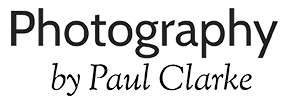
What you’re about to read may at first sound a bit harsh. Apologies.
Every couple of weeks an aspiring event photographer gets in touch with me wanting advice, or maybe a chat about opportunities. While the team’s usually in pretty strong shape, sometimes the approach will catch my interest. Perhaps something about the style, or enthusiasm for the job, or perhaps the choice of example photos.
You don’t need a lot in terms of a body of work to make an impression, by the way. Generally, a great selection of pictures from a single event works for me. Rather than seeing the 20 good ones you took over several years, it’s much more convincing to see the consistency and creativity put into one thing, over a couple of hours. A really good event set, showing an understanding of types of shot, angle and ‘moment’, all served in a coherent style, is perfect.
Anyway, that’s by-the-by for this post, as it’s about something else that’s essential in anyone I’ll want to work with.
If I do think there’s an interesting conversation to be had, I’ll generally agree a meeting time and date. When it comes to venue, though, I get a bit more slippery. Favourite choices are: “The Pret on Borough High St” or “…the one at Trafalgar Square.”
If you know your London, you’ll probably realise there are at least two places that fit this description. And that’s entirely deliberate.
Because you need to be sharp in this job. Yes, you need to be able to take photos, but you also need to be able to handle clients, and guests, and other suppliers, and to maintain calm in the face of difficult situations. As a London event photographer, you need to be very good at logistics. Nothing goes exactly as you might expect. You need initiative. You need presence of mind. Planning. Preparation. Forethought.
So, if you turn up ten minutes late saying “ah, sorry, I wasn’t sure which one you’d be in” – then that may not be the end of the story, but it’s not a good start to it. If the shoot was at ExCeL – a building that’s getting on for half a mile long – would you check in advance which entrance you needed to meet at? Or would you be trying to text the client, with no signal, five minutes after your call time?
The test is passed by doing what we have to do in this job. Working with the information provided, as soon as it’s provided, to check, clarify, prepare. Google the “address” I gave, and if it’s ambiguous, ask. Get to the area at least 20 minutes in advance (we do this – and more than this – on every single job) so there’s time to get it right. Check in when you do arrive (early) as I’ll very likely be early too, and we can make sure we’re both in the same place. Make sure your phone’s charged; that you have a backup battery for it; that you’re set up on popular free wifi networks; that you plan on at least one bit of public transport being cancelled. It goes on, and on, and on. But it’s important.
And if it happens again, after writing this, then that’s also a useful bit of information about research skills…
